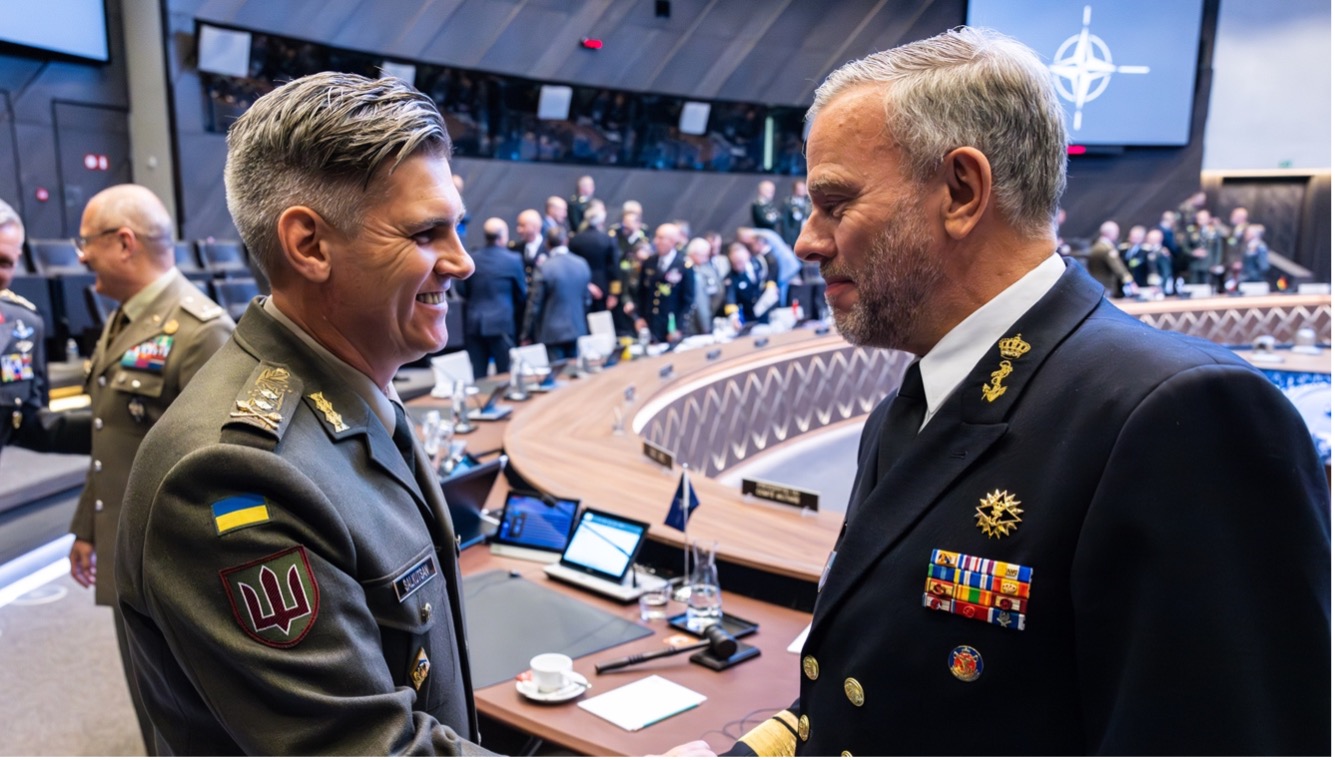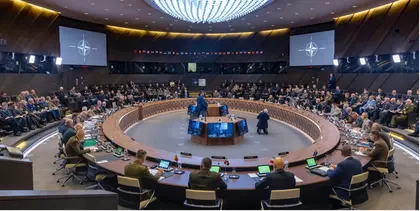The Military Committee is the senior military authority in NATO and its oldest permanent body after the North Atlantic Council, both having been formed only months after the Alliance came into being. It is the primary source of military advice to the leaders of the Alliance and its commanders.
The NATO Secretary General, Jens Stoltenberg, addressed the meeting’s first session and outlined the Alliance’s key priorities and challenges, ahead of the Heads of State Summit in Vilnius, Lithuania in July.
JOIN US ON TELEGRAM
Follow our coverage of the war on the @Kyivpost_official.
He emphasized the fact that, since Russia illegally annexed Crimea and entered into eastern Ukraine in 2014, NATO had increased the readiness of is forces, deploying combat-ready troops to the East of the for the first time in the Alliance’s history, with European Allies and Canada spending an additional $350 billion extra on defense.
He said that, when Putin launched the full-scale invasion of Ukraine in 2022, NATO activated its defense plans within hours bringing 40,000 troops under NATO command, backed by significant air and maritime power from the Baltic to the Black Sea.
The meeting was also attended by General Christopher Cavoli, Supreme Allied Commander Europe (SACEUR), General Philippe Lavigne, Supreme Allied Commander Transformation (SACT), and, for the first time in person, General Timo Kivinen the Finnish Chief of Defense.
The meeting brought together the Chiefs of Defense of all 31 members as well as their counterpart from Sweden, General Michael Bydén. The Commander-in-Chief of the Ukrainian Armed Forces, Valery Zaluzhny, was also expected to attend but, was unable to do so because of operational reasons, relating to the difficult situation at the front. Ukraine was represented by the military representative of Ukraine to NATO, Major General Serhii Salkutsan, who provided an update on the current situation concerning the war.

EU Transfers €1.5 Bln Raised From Russian Assets for Ukraine

189th Meeting of the NATO Military Committee
In his opening remarks, Admiral Rob Bauer, Chair of the Military Committee, had commented on Russia´s war of aggression against Ukraine, drawing attention to the fact that Russia was now in the fifteenth month of what it had hoped would be a 3-day war.
“Goliath is wavering. And that is because David has shown immense resilience and tactical brilliance, supported by 50 nations around the world,” he said, using a biblical analogy.
He later echoed those sentiments, in the press conference that followed the meeting. After commenting on the NATO Secretary General’s earlier comments, he outlined the committee’s plans for closer military integration in the areas of joint planning, command and control resources, and increased levels of readiness, within NATO’s force structure. These would be presented for approval to NATO heads of state in Vilnius.
Admiral Bauer then went on to outline the discussions that were held on the situation in Ukraine. He categorized Russia’s actions as the gravest threat to global security that had been faced in decades. Yet, he and the members of the committee had drawn encouragement from the strength and resilience that the Armed Forces of Ukraine (AFU) and the Ukrainian people had shown in resisting Russian aggression, which he said was “frankly astounding.”
He then mentioned the detailed account, given by the Ukrainian military representative to NATO, Major General Serhii Salkutsan on the current situation in Ukraine along with a detailed explanation of the additional defense requirements Ukraine still needs to, as Bauer said, “regain what is legally theirs.”
He said that the committee was in total agreement that NATO would be unrelenting in its military support for Ukraine “for as long as it takes.” Russia in its actions in Transnistria, Abkhazia, South Ossetia and Ukraine showed there were no limits to Russia’s ambitions beyond its own borders. Putin had again and again done his best to “shake the foundations of the international rules-based order.”
The events of the last fifteen months had ushered in a new era of collective defense for NATO and, in supporting Ukraine, the Alliance is not only protecting Ukraine but also NATO itself and all free democracies.
You can also highlight the text and press Ctrl + Enter






